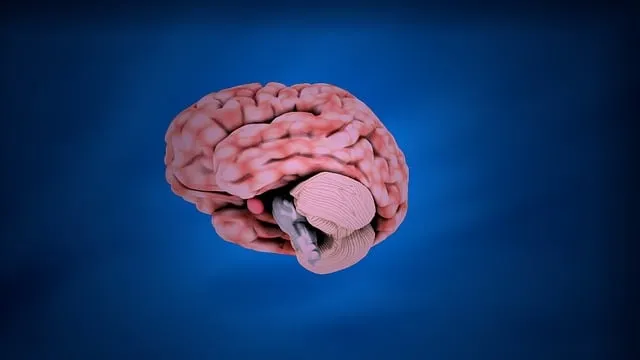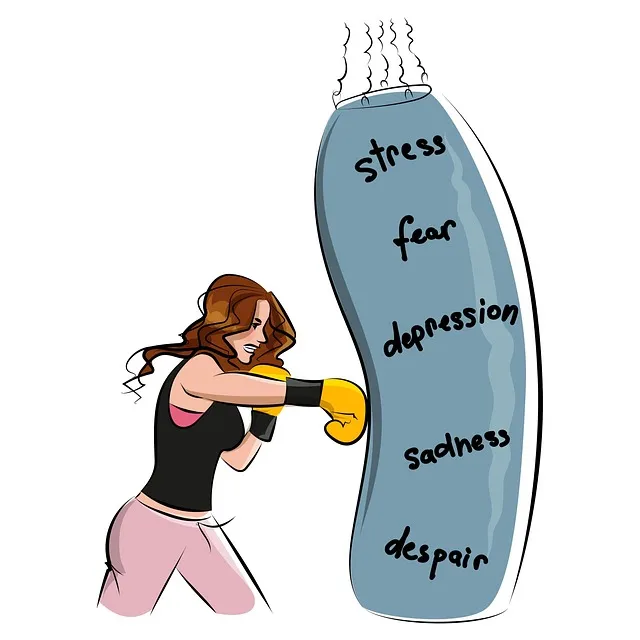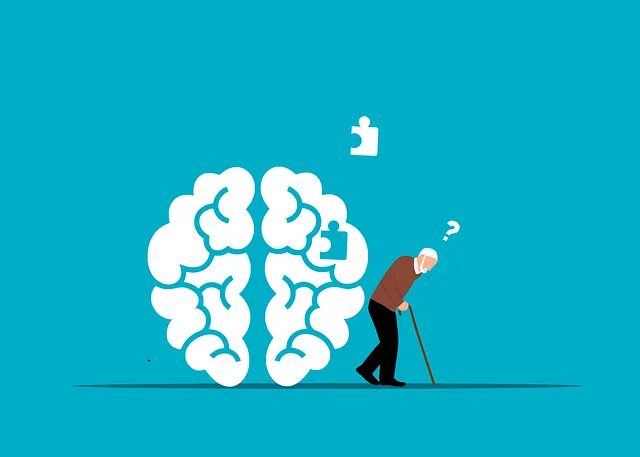Emotional Intelligence (EI), crucial for personal growth and well-being, is emphasized by professionals at the Englewood Kaiser Permanente mental health center during visiting hours. Key strategies for developing EI include empathy, mood management, and constructive coping skills. The center offers flexible visiting hours with comprehensive programs focusing on self-awareness, empathy, emotional regulation, stress management, and improved relationships. Building EI enhances professional performance, promotes personal growth, and improves access to mental health services, as demonstrated by the center's successful initiatives like Mental Health Awareness programs and Risk Assessment for Mental Health Professionals training.
Emotional intelligence (EQ) is a powerful tool for personal growth, enabling individuals to understand and manage their emotions effectively. This article explores the significance of EQ as a game-changer in today’s fast-paced world. We delve into its various aspects, including strategies for enhancement, and highlight the critical role played by institutions like Englewood Kaiser Permanente Mental Health Center in promoting EQ development. Discover practical techniques to measure and nurture your EQ, ensuring continuous improvement during your mental health center visiting hours or beyond.
- Understanding Emotional Intelligence: A Key to Personal Growth
- The Role of Englewood Kaiser Permanente Mental Health Center in EQ Development
- Practical Strategies for Enhancing Your Emotional Intelligence
- Measuring and Nurturing EQ: Tools and Techniques for Continuous Improvement
Understanding Emotional Intelligence: A Key to Personal Growth

Emotional intelligence (EI) is a powerful tool for personal growth and well-being, offering insights into our own emotions and those of others. It involves recognizing, understanding, and managing feelings effectively. At the Englewood Kaiser Permanente mental health center visiting hours, professionals often emphasize EI as a foundation for mental health and improved relationships. By cultivating emotional intelligence, individuals can enhance their ability to navigate life’s challenges with resilience.
Developing EI involves several key strategies, such as fostering empathy—the ability to understand and share the feelings of others. This skill promotes deeper connections and strengthens interpersonal relationships. Additionally, learning mood management techniques enables people to regulate their emotions healthily, leading to better decision-making and overall well-being. Coping skills development is another crucial aspect, empowering individuals to handle stress and adversity constructively.
The Role of Englewood Kaiser Permanente Mental Health Center in EQ Development

The Englewood Kaiser Permanente Mental Health Center plays a pivotal role in fostering emotional intelligence (EQ) development through its comprehensive programs and services. This renowned center is dedicated to providing a supportive environment where individuals can enhance their social skills, learn effective coping strategies, and navigate complex emotions. With flexible visiting hours, it offers accessibility for those seeking mental health support, ensuring a crucial aspect of EQ growth—open communication.
Through specialized workshops and individual counseling sessions, the center facilitates a deep exploration of self-awareness, empathy, and emotional regulation. The Mental Health Awareness programs equip individuals with the tools to manage stress, improve interpersonal relationships, and make informed decisions. Additionally, their Risk Assessment for Mental Health Professionals training is instrumental in developing cultural sensitivity, active listening skills, and effective communication techniques, all essential components of building high EQ.
Practical Strategies for Enhancing Your Emotional Intelligence

Building emotional intelligence (EI) is a powerful tool for personal growth and improved relationships, especially in professional settings like the Englewood Kaiser Permanente mental health center visiting hours. Here are some practical strategies to enhance your EI:
1. Self-Awareness: Cultivate mindfulness by regularly reflecting on your emotions. Keep a journal to track your feelings and triggers. Understanding your emotional responses is the first step towards managing them effectively. This practice can also help you recognize patterns in your behavior, enabling you to make conscious choices about how you react in various situations.
2. Empathy Development: Put yourself in others’ shoes to foster empathy. Listen actively during conversations, focusing on understanding their perspective and emotions. Show genuine interest by asking open-ended questions and validating their feelings. This skill is particularly beneficial for mental health professionals, as it allows them to connect with clients on a deeper level, enhance therapy sessions, and improve patient outcomes. It’s also a powerful tool in reducing the mental illness stigma by promoting emotional well-being promotion techniques.
3. Effective Communication: Practice clear and honest communication. Learn to express your emotions constructively and respectfully. This involves using “I” statements to convey your feelings without accusatory language, which can create defensiveness. During intense conversations, take breaks if necessary to prevent escalation. Such strategies are valuable for navigating difficult interactions and building stronger connections.
4. Risk Assessment for Mental Health Professionals: Given the demanding nature of their work, mental health professionals must prioritize self-care. Regularly assess your emotional well-being and seek support when needed. This might include therapy or peer supervision to process challenging cases and prevent burnout. By maintaining their own emotional intelligence, professionals can better assist their clients in navigating their mental health journeys.
5. Mental Illness Stigma Reduction Efforts: EI plays a pivotal role in challenging societal norms and reducing the stigma surrounding mental illness. When individuals with high EI share their experiences openly, it humanizes mental health struggles and encourages others to seek help without fear of judgment. This collective effort can lead to more supportive environments and better access to mental health services.
Measuring and Nurturing EQ: Tools and Techniques for Continuous Improvement

Measuring and nurturing emotional intelligence (EQ) is a multifaceted process that plays a pivotal role in personal growth and professional success. At the Englewood Kaiser Permanente mental health center, visiting hours serve as a metaphorical gateway to exploring EQ, highlighting its tangible impact on well-being. Various tools and techniques are available for continuous improvement, each tailored to cater to different needs and preferences.
One effective approach involves participating in Mental Health Education Programs designed to foster inner strength development. These programs offer structured learning opportunities that delve into the nuances of emotional awareness, empathy, and self-regulation—key components of EQ. By leveraging such initiatives, individuals can gain valuable insights into their emotional landscapes, fostering a deeper understanding of themselves and others. This, in turn, enhances decision-making abilities, strengthens interpersonal relationships, and promotes overall resilience in both personal and professional spheres.
Emotional intelligence, a powerful tool for personal growth, is nurtured and developed through various strategies and resources. The Englewood Kaiser Permanente Mental Health Center plays a pivotal role in enhancing EQ with its comprehensive programs and support services. By understanding emotional intelligence and employing practical techniques, individuals can improve their self-awareness, empathy, and effective communication skills. Continuous improvement is achievable through tailored tools and measurement techniques, ensuring that emotional intelligence becomes an integral part of one’s life, much like the consistent visiting hours at Englewood Kaiser Permanente Mental Health Center.





